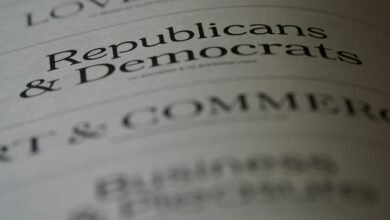Lingua Amputo : The Power and Consequences of Losing Our Voice

This article explores the significance of it, examining its impact across different fields—psychology, culture, politics, and art—while also highlighting how this concept manifests in today’s digital age. The review is prepared by the Baddiehub editorial team, offering a comprehensive analysis of it and its relevance in shaping human expression.
Table of Contents
ToggleUnderstanding the Core Concept of Lingua Amputo
At its core, Lingua Amputo represents more than just the literal act of silencing someone’s speech. It embodies the act of stripping away an individual’s or community’s ability to express themselves fully and freely. In its most direct sense, it refers to the repression or loss of language—whether through external forces like censorship, historical suppression, or even personal trauma that hinders one’s ability to communicate.
It reflects the psychological toll that comes with this loss. For a person or community whose language is suppressed or erased, communication becomes fragmented, identity becomes destabilized, and a vital link to culture and heritage is severed. This phenomenon affects not just the ability to speak, but the very essence of human connection and self-expression.
The Historical Roots
To fully understand the power of Lingua Amputo, it’s essential to explore its historical context. The phrase “cutting off the tongue” has been used to describe the deliberate actions of colonization, authoritarian rule, and other forms of cultural suppression throughout history.
Colonization and Cultural Erasure
One of the most direct manifestations of Lingua Amputo occurred during the colonial period. Colonial powers often imposed their own languages on native populations, forbidding the use of indigenous languages and, in some cases, making it illegal to speak them. This was not merely about communication—it was about erasing entire cultures and identities. By suppressing indigenous languages, colonizers sought to diminish the cultural autonomy of native peoples, forcing them to adopt a language that aligned with colonial power structures.
For example, in many parts of Africa and the Americas, indigenous languages were banned in favor of European languages. As a result, generations grew up without access to their cultural history, traditional knowledge, and oral storytelling practices. This literal and metaphorical it created long-lasting effects on these communities, many of which still grapple with the consequences of losing their native tongues.
Totalitarian Regimes and Censorship
In the 20th century, authoritarian regimes like Nazi Germany and the Soviet Union utilized language as a tool for control. Governments suppressed free speech, limited access to certain information, and controlled what could be publicly said or written. This form of linguistic repression—reminiscent of Lingua Amputo—aimed to restrict the range of thought and expression, ensuring that individuals remained subjugated under oppressive regimes.
In these contexts, not only was communication censored, but the very ability to challenge authority was stifled. By limiting language, these regimes sought to maintain power by preventing citizens from voicing dissent or imagining alternative futures. It is in these extreme environments that it takes on its most poignant meaning—when speech is literally and figuratively severed from those who wish to exercise their rights to free expression.
The Psychological Impact
The effects of Lingua Amputo are not confined to the political or cultural spheres; they are also deeply psychological. Language is not just a medium for communication—it’s an integral part of how we understand and construct our identities. The loss of language, or the inability to express oneself fully, can lead to profound emotional and psychological distress.
Trauma and the Loss of Voice
One of the most insidious forms of Lingua Amputo occurs in the aftermath of trauma. People who have experienced abuse, loss, or hardship often find themselves unable to articulate their pain or distress. This symbolic form of it can leave individuals feeling isolated, misunderstood, or even invisible. The psychological burden of being unable to express one’s emotions can lead to anxiety, depression, and a sense of disempowerment.
In trauma-informed therapy, one of the key goals is to help individuals reclaim their voice—to find ways to articulate their experiences and reclaim their sense of self. This process of “reclaiming” language is a form of healing and empowerment that counters the effects of linguistic amputation.
Isolation and Alienation
On a broader level, the absence of language can create a sense of alienation. When individuals or communities are unable to communicate in the ways that are most natural to them—whether because of language barriers or societal constraints—they may experience a sense of social isolation. This disconnection can further exacerbate feelings of loneliness and frustration, making it even harder to bridge the gap between individuals and communities.
Lingua Amputo in the Digital Age
In the 21st century, the concept of Lingua Amputo remains relevant, albeit in new and complex ways. The rise of digital communication, social media, and artificial intelligence has changed the way we communicate, but it has also introduced new forms of censorship and linguistic control.
Digital Censorship and Social Media Bans
In the digital world, free speech is frequently under attack. Governments, corporations, and other powerful entities often engage in digital censorship to suppress certain voices or ideas. This can take many forms, such as banning individuals from social media platforms, censoring certain topics, or even regulating the language used in digital spaces.
The banning of controversial figures or the silencing of dissenting voices is a modern manifestation of lingua amputo. While these actions are often justified in the name of public safety or preventing misinformation, they also raise significant concerns about freedom of expression and the diversity of voices that are allowed to thrive in the digital space.
Minority Languages and Globalization
As globalization accelerates, many minority languages face the threat of extinction. Smaller languages are often replaced by dominant global tongues like English, Mandarin, or Spanish, leading to a kind of cultural erasure. This linguistic “amputation” is a real and ongoing phenomenon, particularly in indigenous and rural communities, where younger generations are more likely to adopt the dominant language in exchange for social or economic benefits.
The loss of a language is also the loss of an entire worldview. Language is deeply tied to culture, history, and tradition, and when a language dies, much of the knowledge contained within it is at risk of being forgotten. This makes the preservation of endangered languages a critical issue in combating lingua amputo.
Reclaiming Our Voice: Best Practices and Solutions
While Lingua Amputo is a powerful and concerning concept, it is also one that can be resisted and reversed. Reclaiming lost or suppressed language is a vital process for cultural and personal empowerment.
Language Revitalization Efforts
One of the most significant efforts to combat linguistic amputation is language revitalization. Programs aimed at preserving and revitalizing endangered languages are essential in ensuring that future generations can reconnect with their heritage. Schools, community groups, and cultural organizations play a key role in fostering linguistic diversity and ensuring that minority languages are passed down to future generations.
Promoting Free Speech and Inclusivity
On a larger societal scale, combating censorship and promoting inclusivity is vital in preventing Lingua Amputo. Governments, institutions, and social media platforms must strive to protect freedom of expression and ensure that diverse voices are heard. This includes not only protecting minority languages but also ensuring that marginalized communities have the ability to speak openly without fear of retribution or silencing.
Conclusion
Lingua Amputo, as a concept, holds significant relevance in today’s world. Whether through historical oppression, personal trauma, or digital censorship, the severing of language and speech has far-reaching consequences. By understanding the importance of language in shaping identity and communication, we can take steps to protect and preserve diverse forms of expression.
This review has explored the complexities of it, its psychological and cultural implications, and the ways in which we can resist linguistic suppression. It reminds us that language is not only a tool for communication but a vital part of who we are as individuals and as communities. By fostering inclusivity, embracing multilingualism, and standing against censorship, we can ensure that every voice is heard and preserved.
This article was prepared by the Baddiehub editorial team, offering a thorough exploration of the concept of it and its relevance in modern society.




